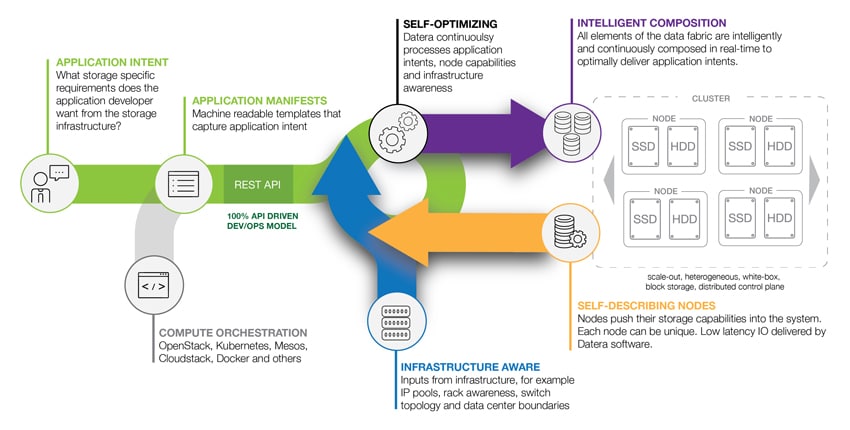Today Datera announced a new integration with Google’s Kubernetes system. Datera states that its intent-defined universal data fabric complements the Kubernetes operational model well. An integration of the two enables automatic provisioning and deployment of stateful applications at scale. According to Datera, this integration with Kubernetes will let them translate application service level objectives, such as performance, durability, security and capacity into its universal data fabric. Datera goes on to claim that the integration will allow enterprise and service provider clouds to seamlessly and cost-effectively scale applications of any kind.

As we previously stated, Kubernetes is an orchestration system for Docker Containers. Kubernetes manages workloads ensuring that their state matches their intention. In the past year Kubernetes has become a successful and popular project that has over 14,000 commits from over 400 contributors.
Back in July, Google updated its Kubernetes to support stateful applications to run in containers (with this came support for Cassandra, Kafka, and MongoDB). The support for stateful applications would enable developers to run thousands of traditional enterprise workloads in containers. Datera claims that this integration and support for stateful applications will expand Kubernetes to automatically tailor runtime storage capabilities to each stateful application, automatically scale these applications, and automatically isolate and protect them with dedicated storage segments. In other words, public-cloud-like infrastructure capabilities could be brought to any data center saving businesses time and cost on managing applications.




 Amazon
Amazon